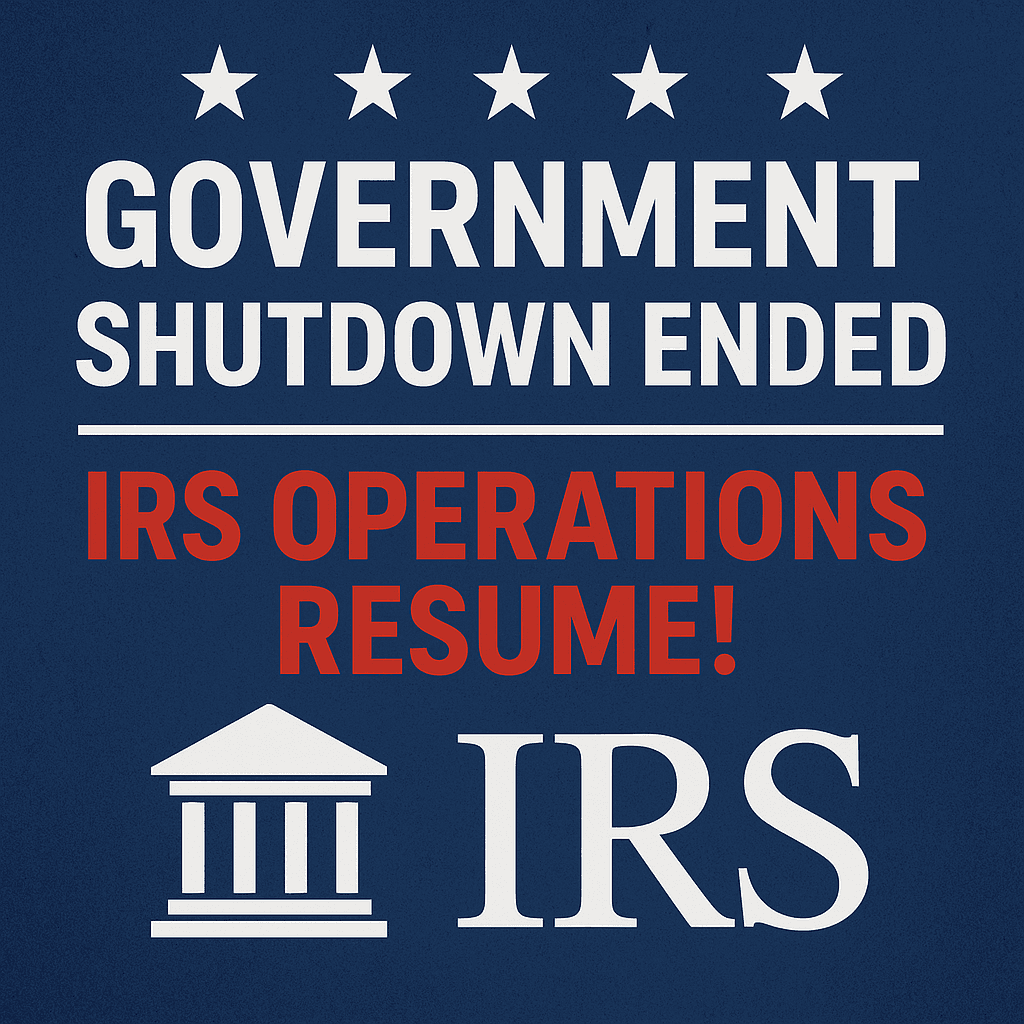Now that the federal government has shaken off its shutdown, a fresh urgency hangs over the IRS and the taxpayers still wrestling with back taxes. The return isn’t simply a sigh of relief—it launches a more aggressive wave of tax enforcement that could fundamentally reshape the landscape for anyone trying to settle their tax obligations.
When the shutdown took effect on October?1,?2025, it essentially froze the IRS’s engine, sidelining roughly ninety percent of its staff and trimming essential services down to a skeletal crew. In the months that followed, the agency operated with less than 40,000 retained employees out of its usual complement of more than 100,000, spawning an unprecedented backlog of cases and correspondence that now cries out for immediate attention (IRS Operations Report).
The practical significance of the shutdown’s end becomes clear when the agency’s goals for the fiscal year are examined. Despite grappling with budget shortfalls—most of the Inflation Reduction Act’s enhanced enforcement funding has been wiped out—the IRS has pledged to sharply raise audit rates for the wealthiest taxpayers. Forecasts indicate that audits of individuals earning more than $10?million will jump from about 11?% to roughly 16.5?% by 2026 a rise of over 50?%, in enforcement activity, according to ITEP Tax Policy Analysis.
The agency’s return to staffing does more than simply normalize administration; it signals the launch of a robust enforcement push designed to recoup lost revenue and underline the organization’s operational resilience. Taxpayers with obligations can expect markedly faster processing of collection actions as the agency strives to demonstrate efficiency and effectiveness after a prolonged period of limited operations.
Perhaps the consequential development for those already grappling with tax problems is that the IRS’s automated collection engine kept ticking over during the shutdown, sending out notices and kick?starting enforcement actions that may now be followed by even sterner collection measures. The avalanche of correspondence that piled up while the agency was closed is slated to be whittled down at breakneck speed as the IRS races to empty its docket and re?assert its enforcement authority.? Thomson Reuters Tax Analysis.
The human element in the resumption of operations can’t be brushed aside. Tax professionals have been flagging inconsistencies in agency responses throughout the shutdown—cases that look almost identical often end up receiving wildly different treatment depending on which processing center handled them. Though this patchwork of outcomes has been a source of irritation for both advisors and taxpayers, it’s expected to give way to uniform—if not slightly stricter—enforcement once normal oversight and quality?control safeguards are back in place.
With the agency back in swing, the notice to taxpayers still carrying back taxes rings loud and clear: decisive steps are called for right now, and the cost of procrastination can balloon dramatically compared with the modest expense of a swift, on?time settlement.
Don’t Wait for the Enforcement Ramp-Up
The next few months are poised to bring an IRS enforcement drive unlike anything seen before. If you’re dealing with unfiled returns, lingering tax debts, or a looming audit, having a seasoned professional on your side isn’t just a convenience—it’s a downright necessity.
Our team of CPAs and Certified Tax Resolution Specialists knows the nuts and bolts of the IRS’s enforcement process and stands ready to help you:
- Deal with any back-tax issues before aggressive collection gets underway
- File missing returns using appropriate penalty-abatement tactics
- Stand in for you during audits and appeals
- Take steps to keep your assets out of the reach of IRS collection measures
Get a no-pressure consultation on your tax situation today.
Call: (213) 600-7388
Unravel IRS troubles with the aid of a CPA/Certified Tax Resolution Specialist whose sole focus is back-tax relief.
